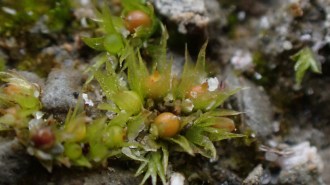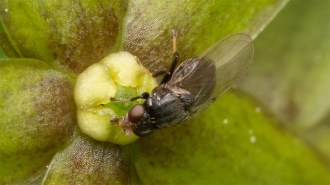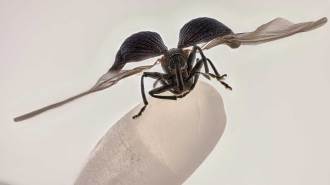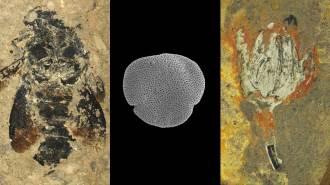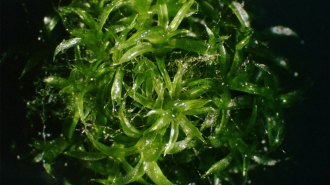Sugar beets in French farm fields are less likely to spread their genes to wild relatives by wafting pollen than by releasing seeds that people unintentionally transport, according to a new genetic study. The finding could complicate debates about the threat of gene transfers from genetically modified crops.
Most previous studies of gene escapes have focused on pollen straying far and wide, says Jean-Francois Arnaud of the Université de Lille 1 in France. Arnaud and his colleagues decided to look at seeds as well as pollen as vehicles of gene transfer.
The scientists studied sugar beets, a wind-pollinated crop that is cultivated widely in northern France. A weedy subspecies, called a sea beet, grows wild along the region’s coast and can cross with its cultivated cousin.
Arnaud’s team collected beet plants from a commercial field, the coast, and a riverbank between the two that might serve as a mixing zone. To check for pollen-introduced genes in the beets, the researchers looked for particular patterns of DNA markers in the cell nuclei. To find seed-introduced maternal genes, the researchers looked for a stretch of DNA that pollen doesn’t carry but that does show up in the chloroplasts of seeds.
Very little evidence showed up for pollen that had escaped from cultivated beet fields, the researchers report in an upcoming issue of Proceedings of the Royal Society of London B. However, about a third of the riverbank plants showed signs of DNA descended from seeds of cultivated plants.
The result is “highly unexpected,” Arnaud says. It indicates, he explains, that people may be dispersing the seeds far and wide via muddy tires and other low-profile means.
****************
If you have a comment on this article that you would like considered for publication in Science News, send it to editors@sciencenews.org. Please include your name and location.
